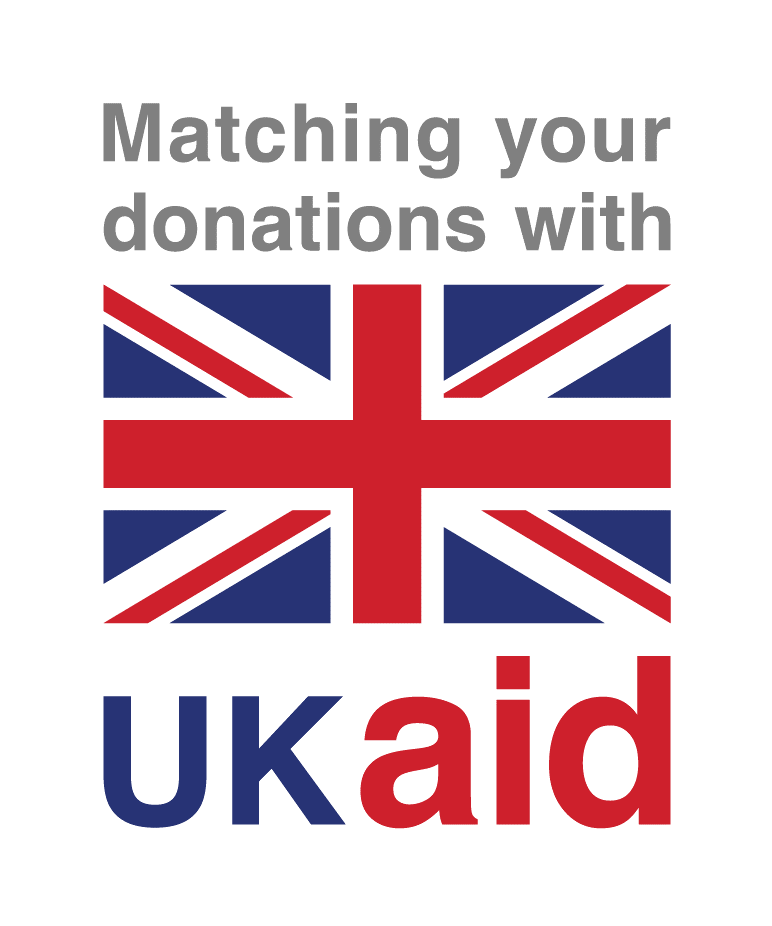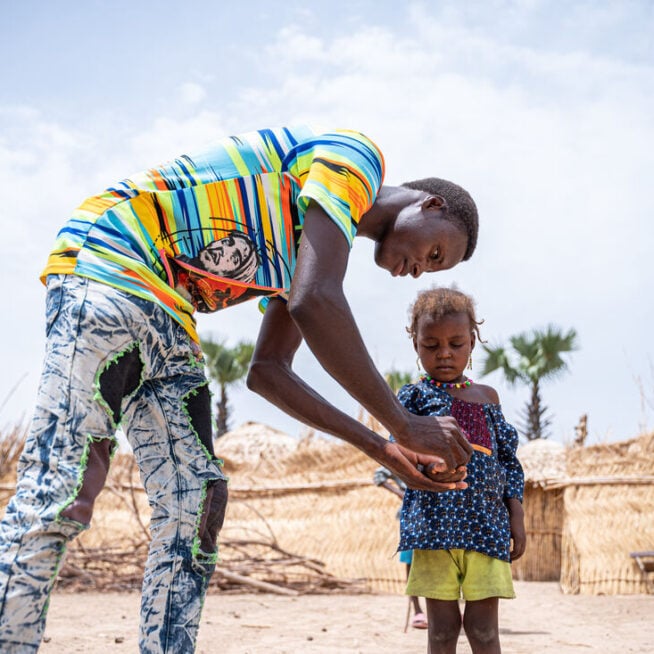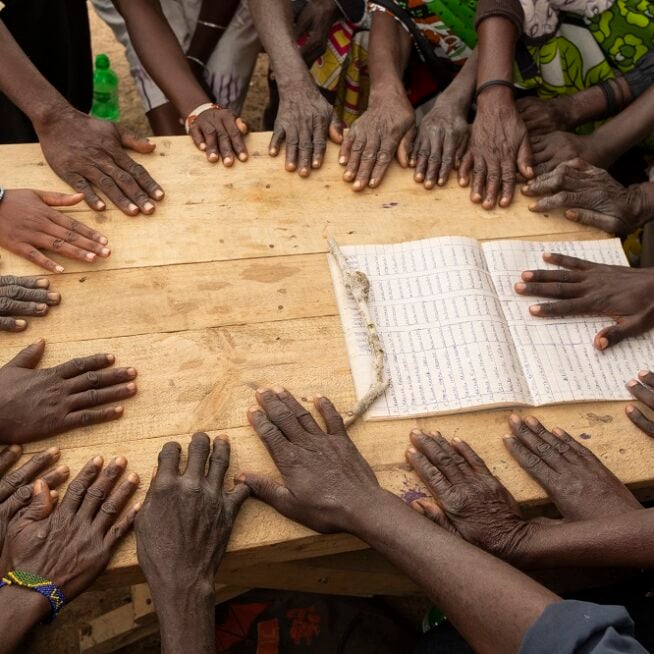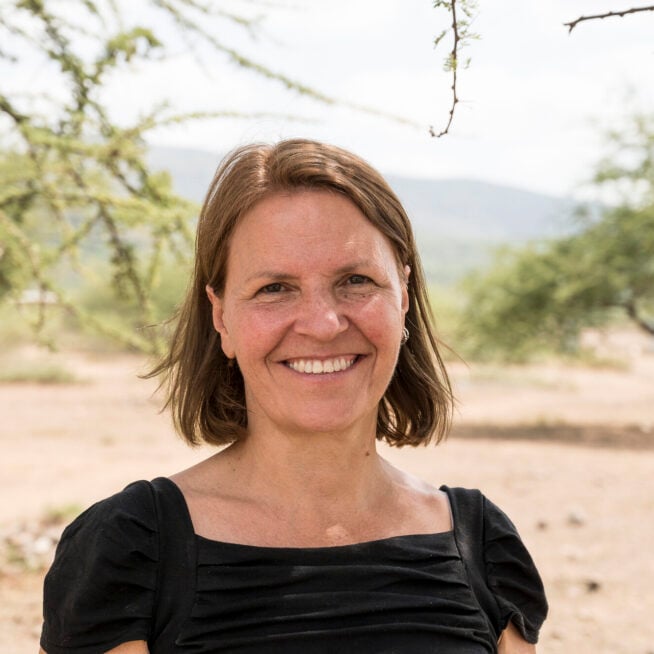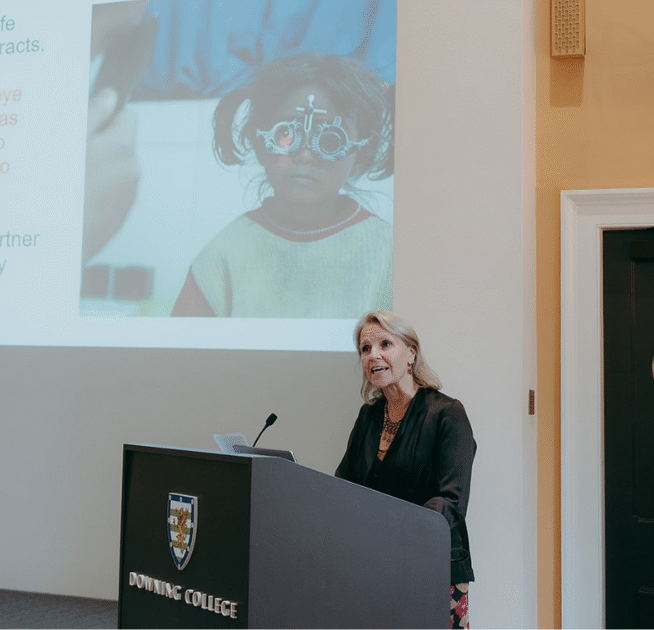Want to transform lives with us? Stay in touch and hear about our news, activities and appeals by email!
34 people See the Way to a brighter future after a weekend of sight-restoring surgery
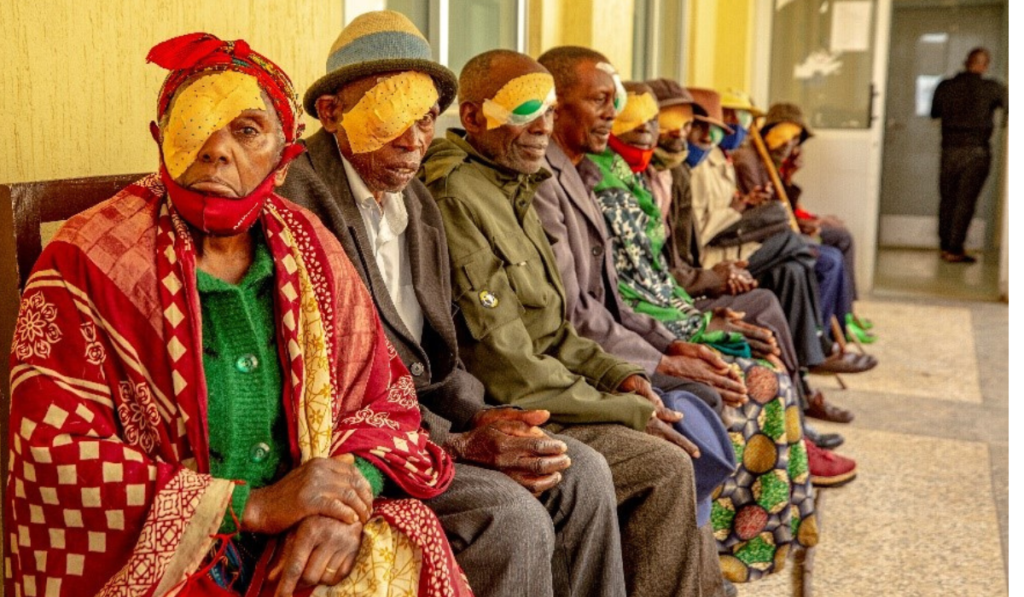
34 people from rural Byumba District in Rwanda can see again, after a visit from a specialist eye health team to carry out sight-restoring cataract operations. The outreach clinic in May was part of CBM UK’s See the Way project, funded by CBM UK supporters and the UK government, which is working to prevent avoidable blindness in Rwanda by improving eye health services in rural areas.
Video Transcript (PDF, 234kb – open in new tab).
Xaverine had been blind for 4 years before arriving at Byumba hospital for the outreach clinic in May. She lives alone and has struggled to manage since losing her sight:
“It started with me not being able to recognise the faces around me. I now can’t walk around by myself… I live alone at home. I don’t have anyone to support me. I do sometimes get visitors to help but they come and go.”
Her sight loss was due to cataracts, the leading cause of blindness worldwide. The condition can be treated with straightforward surgery, but Xaverine was unable make the long journey to a specialist eye hospital for treatment.
CBM’s See the Way project in Rwanda, launched in November 2020, is working to make more eye health services available in District Hospitals like the one in Byumba, bringing services closer to where most people live.
Dr Theophile Tuyisabe from Kabgayi Eye Unit led the outreach team. He says:
“Today we managed to operate on 34 patients. We have this partnership between CBM and Kabgayi Eye Unit, where we are supporting some district hospitals.. we are strengthening their capacity, strengthening their eye units which are there, but also helping them to offer and deliver eye services to people living in those catchment areas. For those hospitals that do not have Ophthalmologists, Kabgayi team goes there to do eye surgeries.. it’s a way of bringing the services to the nearest place as much as we can.”
A lack of eye health services available in Rwanda means that people often have to travel great distances to get treatment, especially if they live in rural areas. As a result, they may become needlessly blind – and can stay blind for decades – if they can’t afford the cost of transport or are unable to make the journey. Too often for people living in poverty, losing your sight also means losing the chance to go to school or earn a living.
Dr Marcel Uwizeye, Director General of Byumba District Hospital, explains: “When you get back your sight through cataract surgeries and you can see, it means you can work, for your home, for your family, for your community. So we cannot have enough words to value this cataract surgery.”
For Xaverine, cataract surgery means being able to get around independently again, after years of relying on others to help her. “I’m happy to receive the treatment today. I believe I will be ok and afterwards I can walk around and maybe do something to profit my family.”
In 2021, the first year of the See the Way project in Rwanda, over 13,000 people with sight problems received eye health services, including 445 people who had sight-restoring cataract surgery and 1448 who received glasses. Other conditions treated included eye injuries and infections. 2 eye–specialist doctors, 8 ophthalmic clinical officers and 103 health centre nurses have received training to better diagnose and treat eye conditions.
Read more about the See the Way Rwanda project.
